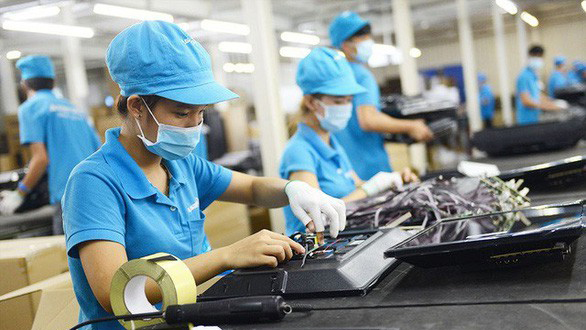HCMC – Vietnam should continue its economic support programs into 2024 to facilitate planned investments and boost aggregate demand, the World Bank (WB) said in its macroeconomic report released on December 18.
The recommended extension of the stimulus would ensure the effectiveness of policy implementation and prop up macroeconomic stability amidst ongoing challenges at home and abroad.
In the face of economic concerns, WB specialists underscore the need for continued vigilance regarding weaknesses in the financial sector. They said restoring confidence and getting the troubled real estate market back on track are vital to short-term economic stability and long-term economic growth.
The suggestions from the WB come amidst a backdrop of mixed economic indicators, including 2.7% industrial production growth and concerns over a declining S&P Global Purchasing Managers’ Index (PMI) in November.
Vietnam’s PMI was 47.3 in November, down from 49.6 in October and 49.7 in September.
On the trade front, exports rose by 6.7% and imports improved by 5.1% compared to the same period last year. November’s export growth was propelled by increased sales of agricultural products, electronics, machinery, footwear and furniture.
Credit in the year through November had expanded by 10.3% year-on-year, way below the State Bank of Vietnam’s target of 14%-15%. This lower-than-expected credit growth resulted from weakened private investment and investor confidence, which was due to the downturn of the real estate market, which constitutes around 21.6% of total outstanding debt in 2022.
According to the report, foreign direct investment (FDI) approvals from January to November rose 14.8% year-on-year to US$28.8 billion. Despite global economic uncertainties, this growth reflects investor confidence in Vietnam’s economic outlook. However, the figure is 10% lower than pre-Covid-19 levels.
The manufacturing sector dominates fresh FDI pledges during this period, accounting for over 60%, while real estate makes up only 3.5% of foreign capital, a significant decline from the 16.7% recorded in the same period in 2022.
The disbursement of FDI capital edged up by 2.9% year-on-year by the end of November, totaling US$20.3 billion.
The November consumer price index (CPI) remained stable at 3.5%, down from 3.6% in October and below the National Assembly’s target of 4.5% for the year. Key contributors to the CPI rise are food and housing, accounting for 1.1 and 0.9 percentage point, respectively.
Higher transportation costs, triggered by rising domestic fuel prices, have started to subside since November. Core inflation, at 3.2% in November, showed a continued deceleration from 3.4% in October, as the lingering effects of the oil shock in March gradually diminished.











